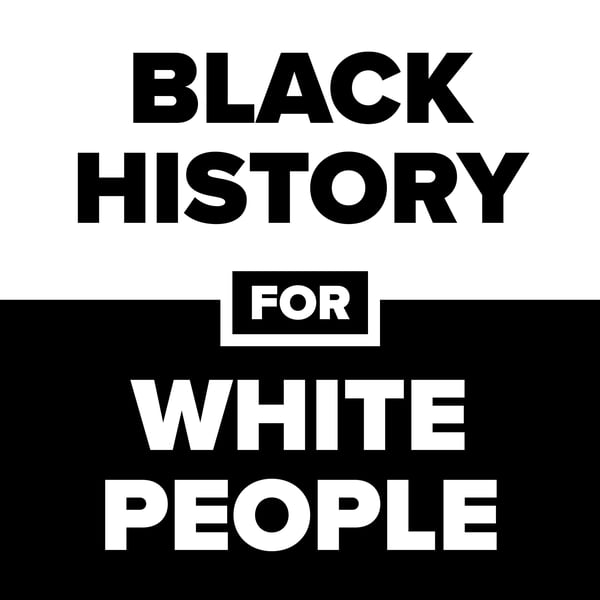George Floyd - Part 1
Black History for White People
Black History for White People
3.6 • 719 Ratings
🗓️ 3 May 2023
⏱️ 47 minutes
🧾️ Download transcript
Summary
In this powerful episode, we dive deep into the life of George Floyd, exploring the systemic racism and discrimination he faced throughout his life, as well as the resilience and sense of community that defined his neighborhood, Cuney Homes. We discuss the oppressive mechanisms used historically to keep black people in a certain position, the impact of the criminal justice system on Floyd's life, and the ongoing segregation in education. Join us as we honor George Floyd's memory and work towards a more just and equal society.
Visit us at blackhistoryforwhitepeople.com.
$5/month supports us at patreon.com/blackhistoryforwhitepeople.
Check us out on Twitter @BHforWP and Instagram @BlackHistoryForWhitePeople or feel free to email us at [email protected].
Support this podcast at — https://redcircle.com/black-history-for-white-people/donations
Advertising Inquiries: https://redcircle.com/brands
Privacy & Opt-Out: https://redcircle.com/privacy
Transcript
Click on a timestamp to play from that location
| 0:00.0 | I don't know what most white people in this country feel, but I can only include what they feel from the state of their institutions. |
| 0:12.0 | Now, this is the evidence. You want me to make an act of faith risking myself, my wife, my woman, my sister, my children, on some idealism which you assure me |
| 0:23.0 | exists in America, which I have never seen. |
| 0:26.7 | Okay, today we are talking about George Floyd. |
| 0:29.3 | This is a, not a part two, but we kind of tease this episode at the end of the last episode. |
| 0:35.4 | So if you didn't listen to that, make sure to go back to the one before this and take a listen. And yeah, I'm sure everybody listening to this is probably |
| 0:43.3 | aware of the name George Floyd and knows some degree of maybe the story of what happened. But |
| 0:49.4 | Garen, take us what do we need to know? So I wanted to do this episode because even for myself, I know of George Floyd and didn't |
| 1:01.6 | really know his story or his life and I wanted to know who he really was and more of his |
| 1:07.0 | story. |
| 1:07.8 | Robert Samuels and Tulouse-Auluru-inipa from New York Times did a biography on his life |
| 1:13.3 | called His Name is George Floyd. So I would love for you guys to pick up his biography because it |
| 1:20.2 | goes into a lot more detail than we'll have time to do here and is a great book. But I was |
| 1:25.7 | excited for the opportunity to look into his life and find out more of |
| 1:30.4 | who he was because right now I think he's more of an icon than somebody who he can actually |
| 1:35.8 | directly relate to. And this biography really helped me to see more who he actually was. And that's |
| 1:42.2 | what I hope to introduce you guys to and bring to you through this episode. |
| 1:46.2 | Great. |
| 1:47.0 | So I'm going to start with a quote from that biography. |
| 1:49.6 | It says, |
| 1:50.8 | When George Floyd took his first breath in 1973, |
| 1:54.6 | the strictures of Jim Crow-style discrimination in America |
... |
Please login to see the full transcript.
Disclaimer: The podcast and artwork embedded on this page are from Black History for White People, and are the property of its owner and not affiliated with or endorsed by Tapesearch.
Generated transcripts are the property of Black History for White People and are distributed freely under the Fair Use doctrine. Transcripts generated by Tapesearch are not guaranteed to be accurate.
Copyright © Tapesearch 2025.

